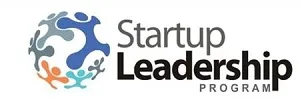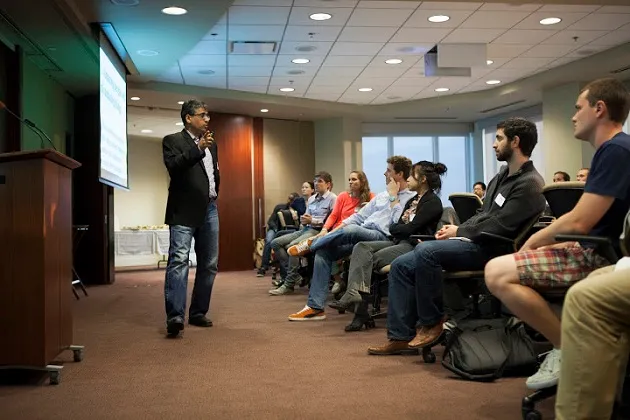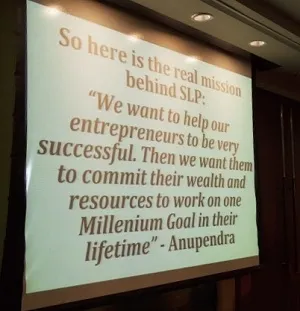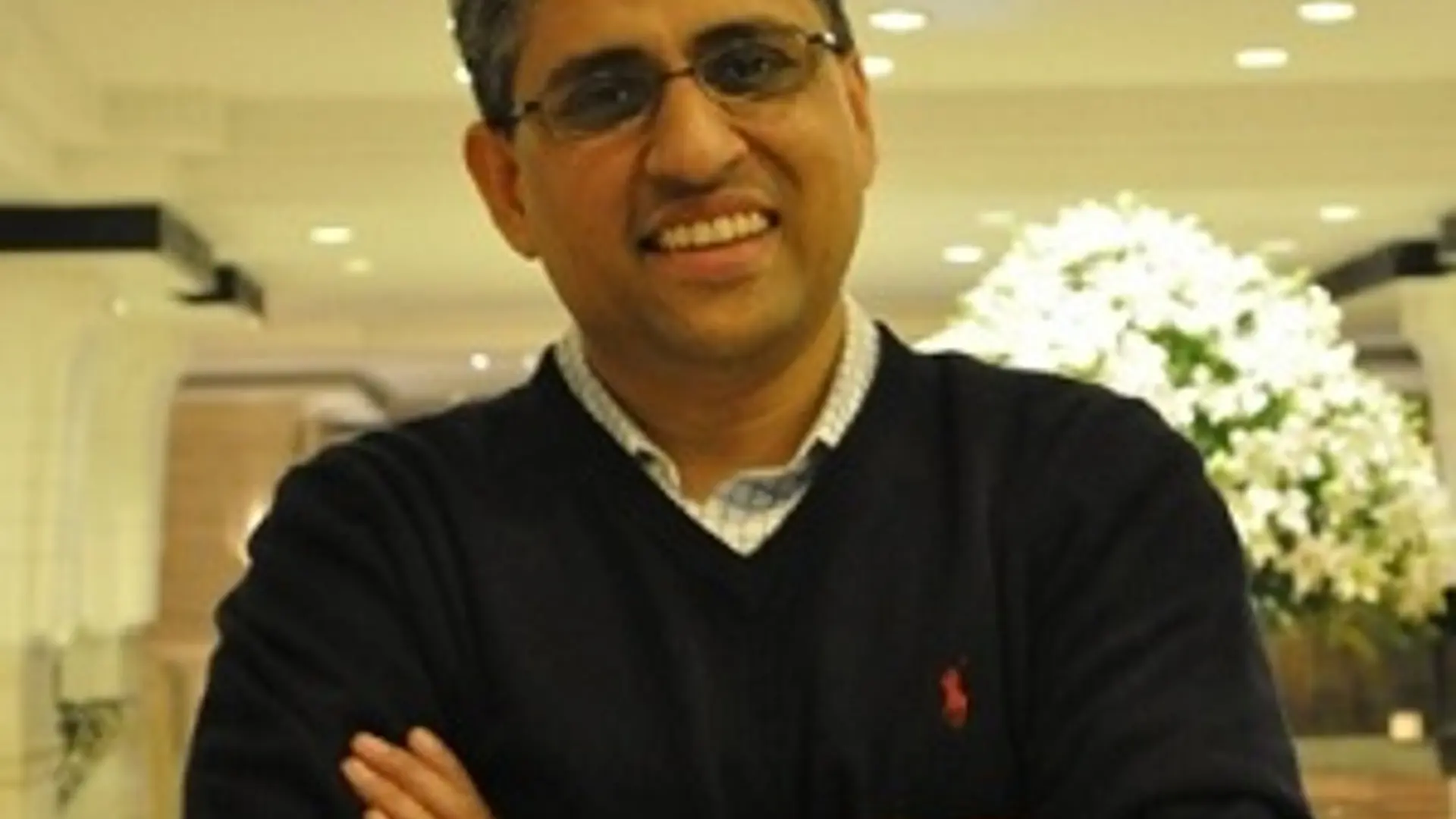How Anupendra Sharma created an army of 800+ able CEOs around the world

In the year of 2003, one of the first entrepreneurship and leadership cell in India was started in BITS Pilani. Over the years, the cell has recognized and supported hundreds of budding entrepreneurs and pioneered innovation & leadership among the startups in India. Of the three BITS Pilani alumni who started CEL, one was stuck with his idea of educating next-gen CEOs and leaders. Having met many young entrepreneurs in Business plan competitions (one of which he even became co-founder) and among his peer he understood the power of such an idea.
It took Anupendra Sharma over 3 years and the valuable experience of his father-in-law Mr. Puran Dang in the non-profit sector, to come up with Startup Leadership Program in year 2006. Besides being the founder of SLP, he’s currently a Senior Venture Partner in a corporate venture fund in US. Perhaps it was the BITS Pilani bond between us, which made the media shy Anupendra speak candidly with me for hours together and you’ll too enjoy the story of Startup Leadership Program and his inspirations, challenges & learning:
The philosophy behind SLP
In 2006, John Wood, co-founder of ‘Room to Read’, a global non-profit organization authored a book based on his experiences called ‘Leaving Microsoft to Change the World: An Entrepreneur's Odyssey to Educate the World's Children’. "This book explains that if we let people participate in an idea they are passionate about, it propels on its own. That’s exactly what I've incorporated through SLP,” claims Anupendra.

He further added, “I believe that being an entrepreneur is a privilege, when you wake up and not worry about the basic needs and just chase your dream. Young people should never forget this. In fact, our last class in SLP curriculum is called ‘Reflections’ where each fellow talks about the change his work has brought and his commitment towards his contribution to the social mission. The underlying principle is to educate the fellows so that when they go out, they commit their knowledge, resources & money for the society.”Shaping up of the curriculum for SLP
The inaugural batch of SLP had only 7 fellows, and it was a 12 month-long program with monthly meetings at Anupendra’s office. It was focused on life sciences as Anupendra wanted to address the lack of innovation in this field. There were no entrepreneurs, only VCs & innovators were a part of this batch & yet everyone had a great experience. For the course, Anupendra himself built many real life gaming simulation to inculcate leadership values.
“Towards the end of the program, I asked everyone if it was a bad idea. Had the answer been ‘Yes’, I would have simply went back to my job. But the kind of feedback I got from fellows was phenomenal & they all loved it unanimously. Everyone one emphasized on moving beyond life sciences, shortening the duration of course and preparing more structured curriculum,” mentioned Anupendra.

Today, SLP is offered in 9 countries and the content takes into account the difference in culture, legal practices & regulations in different geographies as it forms an important part of study in the program. There is technical aspect and non-technical aspect to the curriculum of SLP. For example, term sheets in India are different from that of China & Australia. But for a startup that’s planning to raise Series-A from US, its important understand the VC-term sheet of US as well. Similarly, in India & China, co-founders equity split is an important issue and the curriculum there makes sure to cover them. A total of over 40 mentors provide their valuable guidance to 25 SLP fellows in a chapter. Towards the end of program, a 2-3 hr speed dating session with VCs is organized where entrepreneurs test their technical knowledge to play with investors.
Challenges in running a voluntary organization
“Right from the beginning it has been a conscious decision to proceed in a lean way. One of my learning has come from my connection with Akshay Patra Foundation as a donor. They feed 1.3 million children daily through mid-day meal scheme in India. For many children this meal becomes the only reason to attend the school & get education. As a donor, you know that for every $11 you’re spending you’re taking chance to get a child to education. Similarly, we have inculcated a sense of responsibility and accountability among the program coordinators and make sure that we’re not spending the money unless it’s really needed. “
Despite of all the efforts Anupendra pointed out following key challenges in running SLP:
a) With the sincere contribution from the sponsors SLP has been able to raise certain amount of funds, but funding has always been a constraint (administration still has just 1 full-time & 4 part-time employees).
b) Entrepreneurs are spirited individuals and if they do not get top-notch resources they’ll drop out. It has been a challenge but at the same time an achievement as well to be able to deliver that.
c) Consistency in education among different geographies of the world.
d) Every year once the program is over, past fellows take over the responsibility as program coordinators. This means there’s a change in leadership every time and hence lack of stability.
SLP is working on all of the above as a priority in this year and look forward to overcome them.
Core values imbibed in a fellow

a) An SLP fellow is a good person with his/her sense of community and giving back.b) SLP fellows are all high-caliber individuals who have done something remarkable in their life (if not in a startup then in their jobs). Few of our fellows are MIT Tech Review under 35 winners.
c) All the fellows are very much open to learning and understand the importance of feedback.
d) SLP is a leadership program and not a fellowship. All fellows are proactive leaders, innovators, founders and CEOs.
e) Every SLP fellow has to commit lifetime support to all fellows across the globe as their network is the biggest asset. It’s a price they have to pay!
Common trends among startups in different geographies
843 fellows have benefited from SLP till date spread across 9 countries. All these innovators are from different markets which gives everyone at SLP an entirely different exposure. Some of the major trends can be enlisted as follows:
a) 158 women entrepreneurs have been a part of SLP program.
b) Most of the participating fellows are from e-commerce and Social Media & Technology startups.
c) Younger crowd constitutes majority of SLP fellows.
d) There’s not much participation from life sciences, social enterprises and clean tech.
e) We have seen many SLP folks joining accelerators and we encourage the same. Though accelerators in US differ largely from Indian accelerators as the latter are more diversified, but both are serving a great deal of experiences to entrepreneurs.
f) US remain the favorite destination for many SLP fellows to secure Series-A funding. Few startups see US as a good customer base as well.
We will be publishing the next part of our conversation with Anupendra tomorrow. Meanwhile SLP is already accepting applications for the next batch. You can apply now.







